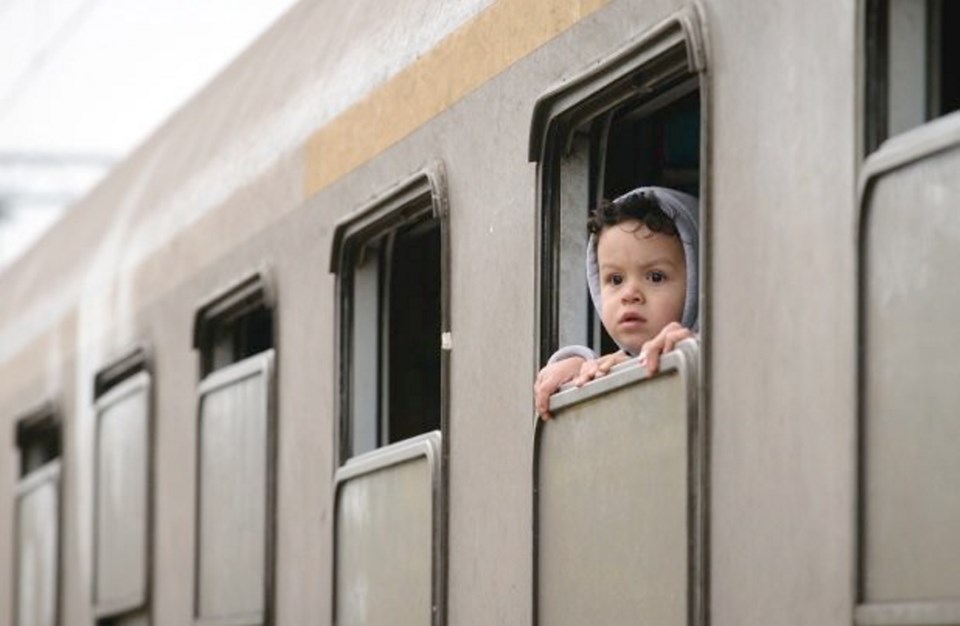If Justin Trudeau makes good on his commitment to bring 25,000 Syrian refugees to Canada by the end of the year, it will mean an almost threefold increase in the annual number of refugees to B.C. in the space of a couple of months.
That has people tasked with resettling refugees in Metro Vancouver scrambling to ensure the necessary services are in place.
B.C. typically receives between 800 and 900 government-assisted refugees each year, said Chris Friesen, settlement services director with the Immigrant Services Society of B.C., the organization charged with providing initial housing and orientation. Based on the share of Canada’s refugees B.C. usually receives, this province can expect an additional 2,000 before the end of the year if the Liberals make good on their promise, Friesen said, adding that he has not received a firm number or time frame from Citizenship and Immigration Canada. He expects to learn more details from the federal government early next week.
“We have already developed budgets, staffing models and systems for upwards of 1,500 government-assisted refugees, over and above what we currently receive, over a six-month period,” Friesen said. “If we’re talking two months, then we’re going to revisit that.”
Friesen said he has alerted Vancouver Coastal Health, Vancity, which handles bank accounts for new refugees, several municipal governments and the province about the potential mass arrival in the hope of formulating a co-ordinated response.
Housing is a major concern. Welcome House, where all government-assisted refugees to B.C. spend their first few weeks, can sleep about 75 people, Friesen said, adding that ISS of B.C. staff are contacting hotels in the area to check on rates and availability.
“Such a large, massive refugee relocation movement, the largest in recent history, would require significant involvement of the military … The military would have to be involved both in airlifts as well as temporary housing in Canada. There’s no other way.”
B.C. Premier Christy Clark announced a $1-million refugee fund last month to help settle newcomers once they arrive. Pressed for details on how that fund would be used, Jobs, Tourism and Skills Training Minister Shirley Bond would not get into specifics.
“Right now, the province is working with settlement agencies, community groups and private sponsors to make sure the funds are used to get the best outcomes for refugees,” Bond said in an emailed statement. “We expect that these outcomes will be supporting communities and private groups who want to sponsor refugees so they have a welcoming community when they arrive in B.C.”
Two-thirds of the refugees will likely need trauma counselling, Friesen said, and as many as 35 per cent may be children and youth under the age of 18.
As many as a third will likely end up in Surrey, the top destination for new refugees to B.C.
Mayor Linda Hepner said her city is prepared to welcome them, as long as other levels of government are willing to fund the programs needed to support them.
“Surrey has the experience and the depth of understanding of the needs of refugees and … our door is open. But that comes with a cost, and that is … to have those integration services and some heavy financial support at the front end … for many years, because it isn’t just the initial integration into a new world and the complexities of city living,” Hepner said. “It’s also the ongoing needs that may come with trauma experiences. Those financial commitments have to come with the refugees.”
It’s also important that funding go to the cities where refugees end up, as many start out in one place — often Vancouver — and then migrate to another city — often Surrey or Coquitlam — in search of cheaper housing or services, Hepner said, adding that she plans to meet with Surrey’s newly-elected MPs early next week to discuss some of these issues.
She is particularly concerned about school capacity, with so many refugee children on the way.
Asked if Surrey can expect any new money to upgrade its schools, Bond said school districts receive just under $9,000 in funding per pupil based on annual enrolment numbers. A partial adjustment is also made for students who enter the system partway through the year, as refugee children often do.
In the last school year, the province provided $258,000 for 63 refugee children who enrolled in various districts mid-year, Bond said.



